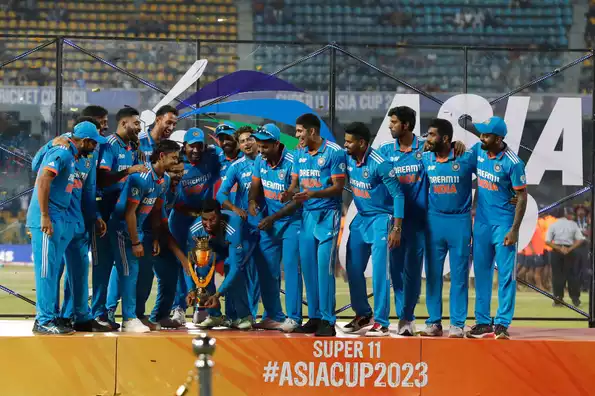The Asia Cup saga may be nearing a resolution. While definitive conclusions remain premature, a palpable sense of optimism now surrounds the continental championship, a significant shift from previous uncertainties fueled by tensions between India and Pakistan.

Although final details are pending, a formal decision is anticipated next week. The Asian Cricket Council (ACC) aims to release the schedule for the six-team tournament in early July, coinciding with their expected meeting.
If everything proceeds as planned, the ACC is reportedly targeting a September start, with September 10 as a potential date for the first match. The T20 format tournament will feature India, Pakistan, Afghanistan, Sri Lanka, Bangladesh, and the UAE. Promotional activities have already commenced.
The UAE remains the leading candidate to host the event. However, discussions are also ongoing regarding a hybrid hosting model. While India is the designated host, the ACC previously decided that Asia Cup tournaments hosted by either India or Pakistan would be held at a neutral venue.
The tournament faced uncertainty following the Pahalgam terror attack in April. Tensions further escalated after India launched Operation Sindoor against Pakistan in May, raising concerns about the event's viability. Calls for India to boycott Pakistan in multilateral events also grew. Currently, India does not participate in bilateral cricket with Pakistan. A potential boycott of Pakistan in global events was even slated for discussion at the next ICC meeting.
Recent developments in global cricket suggest a potential shift. The International Cricket Council (ICC) recently unveiled schedules for two major events: the Women's ODI World Cup in India and Sri Lanka, and the Women's T20 World Cup in England. Notably, India and Pakistan are scheduled to compete in both tournaments, first on October 5 in Colombo, and again on June 14 at Edgbaston.
Despite the silence from BCCI, ACC, and ICC officials, these developments indicate that cricketing relations between the two rivals will likely continue, at least in global tournaments. These matches are significant revenue streams for global cricket. While India and the Board of Control for Cricket in India (BCCI) may not heavily rely on revenue from these high-profile encounters, governing bodies like the ICC, the ACC, and their member boards do.
Newer articles
Older articles
 Jannat Zubair Reveals "Biggest Regret" After "The Traitors" Elimination; Finale Looms
Jannat Zubair Reveals "Biggest Regret" After "The Traitors" Elimination; Finale Looms
 Beyond the Blood Test: 5 Subtle Signals of Prediabetes You Shouldn't Ignore
Beyond the Blood Test: 5 Subtle Signals of Prediabetes You Shouldn't Ignore
 Samsung Galaxy A35 5G and A55 5G: Official Pricing and Availability Announced
Samsung Galaxy A35 5G and A55 5G: Official Pricing and Availability Announced
 Najmul Hossain Resigns as Bangladesh Test Captain After Sri Lanka Defeat
Najmul Hossain Resigns as Bangladesh Test Captain After Sri Lanka Defeat
 Gambhir Defends India's Tailenders Despite Costly Batting Collapses in England Test Loss
Gambhir Defends India's Tailenders Despite Costly Batting Collapses in England Test Loss
 West Indies Coach Daren Sammy Fined, Receives Demerit Point for Umpire Criticism
West Indies Coach Daren Sammy Fined, Receives Demerit Point for Umpire Criticism
 FIFA Club World Cup 2025: Upsets, Messi Magic, and 2026 World Cup Concerns Emerge From Group Stage
FIFA Club World Cup 2025: Upsets, Messi Magic, and 2026 World Cup Concerns Emerge From Group Stage
 Wimbledon's All-White Dress Code: The History, Controversies, and Evolving Rules
Wimbledon's All-White Dress Code: The History, Controversies, and Evolving Rules
 Colon Cancer: Don't Ignore These 5 Early Warning Signs
Colon Cancer: Don't Ignore These 5 Early Warning Signs
 Prada Admits Kolhapuri Chappal Influence in New Sandal Design After Criticism
Prada Admits Kolhapuri Chappal Influence in New Sandal Design After Criticism